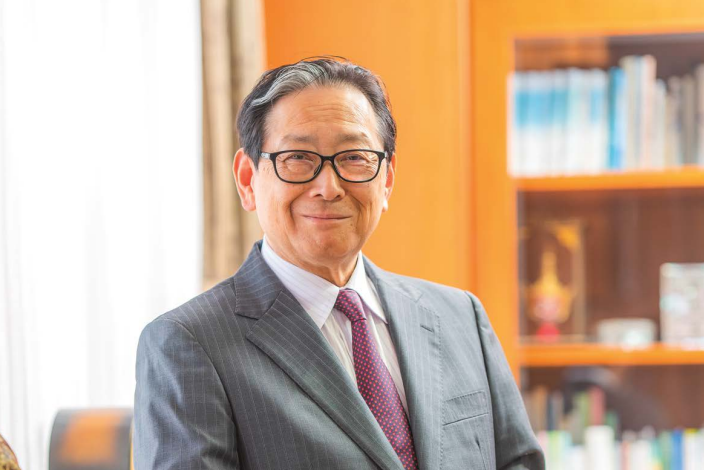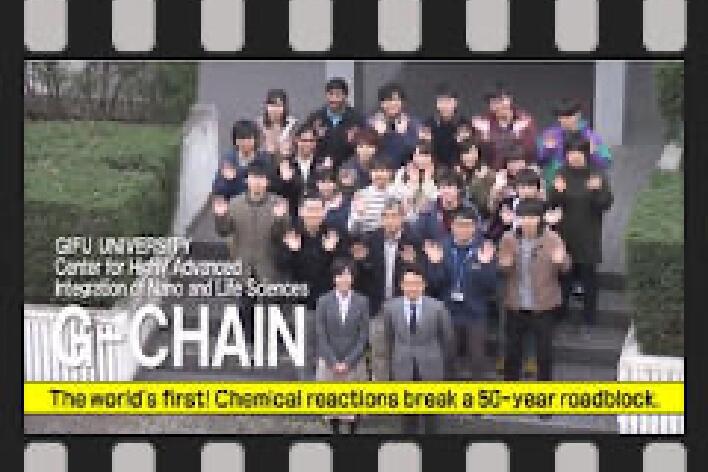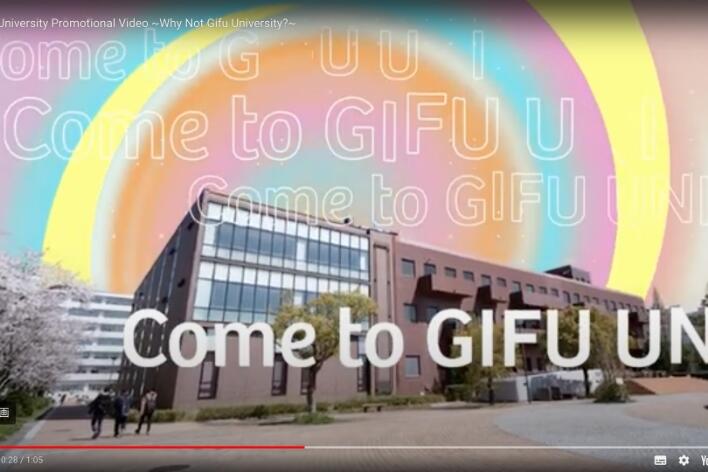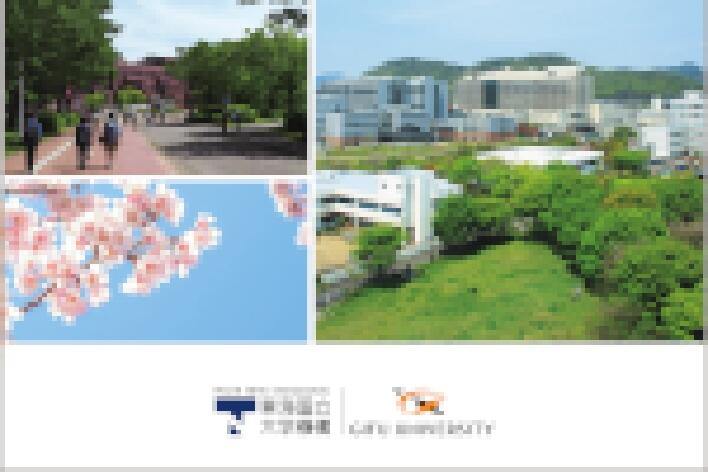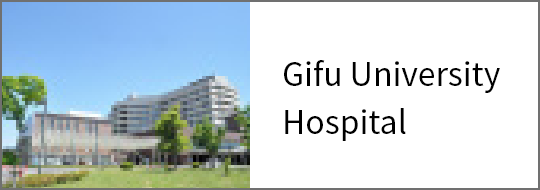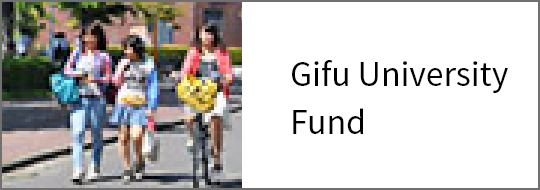Listen to Study Abroad Alumni:Study Abroad Roundtable
*Information related to faculty members/students and graduate schools at Gifu University here are all that of the time of interviewing.
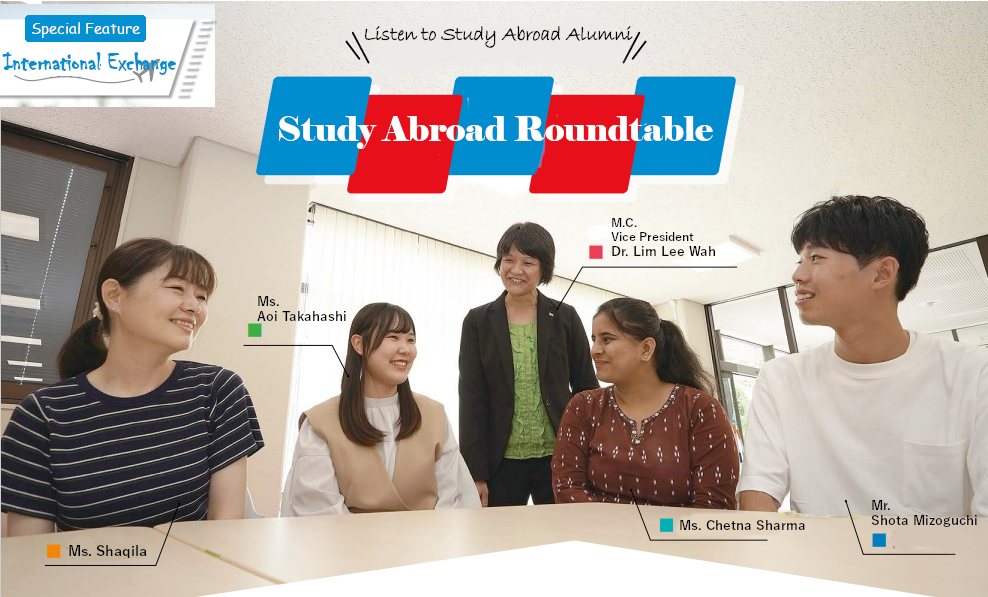
Studying abroad expands learning possibilities
From Japan to overseas, and from overseas to Japan - we spoke with four students of different faculties and nationalities who took advantage of the diverse study abroad programs offered by Gifu University about what they gained in learning and outlook.


Mr. Shota Mizoguchi
3rd year, Informatics Course
Participated in ESL at Griffith University in AY 2023

Ms. Aoi Takahashi
August 2023 to May 2024
Studied at Northern Kentucky University as an exchange student

Ms. Shaqila
(graduated from Inner Mongolia Minzu University)

Ms.Chetna Sharma

What are your goals and preferences? Studying language? Investigating culture? Conducting research? Choose the combination and course structure that best suits you.
 You have both experienced studying abroad through different programs. What were the reasons that led you, as undergraduate students, to decide to study abroad?
You have both experienced studying abroad through different programs. What were the reasons that led you, as undergraduate students, to decide to study abroad?
 I always had an irresistible desire to go abroad and made studying overseas my objective while studying at university. In my second year, when COVID-19 pandemic restrictions were lifted, I participated in a short-term ESL (see P10) study abroad program to learn English. I opted for a five-week course and homestay at Griffith University in Australia, and I attended classes taught in English.
I always had an irresistible desire to go abroad and made studying overseas my objective while studying at university. In my second year, when COVID-19 pandemic restrictions were lifted, I participated in a short-term ESL (see P10) study abroad program to learn English. I opted for a five-week course and homestay at Griffith University in Australia, and I attended classes taught in English.
 During my high school years, while studying English, I also developed an interest in foreign cultures and wanted to study abroad, which led me to enroll in the Faculty of Regional Studies. I chose Northern Kentucky University in the United States as my study-abroad destination, through my faculty's international liberal arts program. Many students from Gifu University had already done the same. I was attracted by my predecessors telling me that I could take classes unique to America, such as dance. During my study abroad, I actively participated in local events like Halloween and Christmas.
During my high school years, while studying English, I also developed an interest in foreign cultures and wanted to study abroad, which led me to enroll in the Faculty of Regional Studies. I chose Northern Kentucky University in the United States as my study-abroad destination, through my faculty's international liberal arts program. Many students from Gifu University had already done the same. I was attracted by my predecessors telling me that I could take classes unique to America, such as dance. During my study abroad, I actively participated in local events like Halloween and Christmas.
 Why did you choose Gifu University, Ms. Shaqila?
Why did you choose Gifu University, Ms. Shaqila?
 Since childhood, I have been interested in Japan because I became familiar with Japanese life and culture through anime and manga. I started receiving information from a friend who studied at Gifu University. I learned that it had a good reputation for research in my field, agricultural animal science, which I majored in at university in China. This persuaded me to choose to study at Gifu University for my master's degree. After completing my master's, I returned to my home country and got a job, but I came back to Japan to continue my research in a doctoral program.
Since childhood, I have been interested in Japan because I became familiar with Japanese life and culture through anime and manga. I started receiving information from a friend who studied at Gifu University. I learned that it had a good reputation for research in my field, agricultural animal science, which I majored in at university in China. This persuaded me to choose to study at Gifu University for my master's degree. After completing my master's, I returned to my home country and got a job, but I came back to Japan to continue my research in a doctoral program.
 Ms. Chetna, you are enrolled in the Joint Degree Program (JDP), right?
Ms. Chetna, you are enrolled in the Joint Degree Program (JDP), right?
 Yes. I plan to study at Gifu University for four months under this program. My professors at the Indian Institute of Technology Guwahati (IITG) have always told me that experiencing international exposure and changing our mindset is important. With the expectation of learning new perspectives and techniques that will benefit me, I came to Japan.
Yes. I plan to study at Gifu University for four months under this program. My professors at the Indian Institute of Technology Guwahati (IITG) have always told me that experiencing international exposure and changing our mindset is important. With the expectation of learning new perspectives and techniques that will benefit me, I came to Japan.
The importance of communication and recognizing cultural differences.
 What insights and learning did you gain from studying abroad?
What insights and learning did you gain from studying abroad?
 At first, I was surprised by the quiet and calm environment in Japan, but now I am used to it. In India, there are constant car horns and people talking, so I might be confused when I return home (laughs).
At first, I was surprised by the quiet and calm environment in Japan, but now I am used to it. In India, there are constant car horns and people talking, so I might be confused when I return home (laughs).
 How about your research activities?
How about your research activities?
 I am conducting research with the goal of increasing the amount of insect-resistant compounds in tea leaves to prevent insect damage, under the guidance of professors who are research partners of my professors in India. In India, I mainly conducted experiments using test tubes in the university lab, but at Gifu University, I am doing a lot of fieldwork, such as visiting tea factories, and I am also learning techniques in the use of large analytical instruments.
I am conducting research with the goal of increasing the amount of insect-resistant compounds in tea leaves to prevent insect damage, under the guidance of professors who are research partners of my professors in India. In India, I mainly conducted experiments using test tubes in the university lab, but at Gifu University, I am doing a lot of fieldwork, such as visiting tea factories, and I am also learning techniques in the use of large analytical instruments.
 I am researching the antibacterial mechanism of lysozyme, an enzyme found in egg white. In the same lab, there are people doing research with cats, dogs, quails, and other subjects. Unlike in China, in Japanese labs, students can work on research that interests them with the support of their professor, even if it is not the same area as the professor's research. At first, I couldn't speak any Japanese, but I became friends with my tutor through gestures and body language. I learned that if I speak with confidence, my language skills can improve.
I am researching the antibacterial mechanism of lysozyme, an enzyme found in egg white. In the same lab, there are people doing research with cats, dogs, quails, and other subjects. Unlike in China, in Japanese labs, students can work on research that interests them with the support of their professor, even if it is not the same area as the professor's research. At first, I couldn't speak any Japanese, but I became friends with my tutor through gestures and body language. I learned that if I speak with confidence, my language skills can improve.
 When I first studied abroad, I used to think about what to say in my head before speaking. However, when my host family and other international students from Korea and China at the same university spoke to me in broken Japanese, saying things like 'Good morning,' it made me feel more relaxed about speaking English. By communicating with the desire to convey my thoughts, I had a valuable experience that broadened my perspective.
When I first studied abroad, I used to think about what to say in my head before speaking. However, when my host family and other international students from Korea and China at the same university spoke to me in broken Japanese, saying things like 'Good morning,' it made me feel more relaxed about speaking English. By communicating with the desire to convey my thoughts, I had a valuable experience that broadened my perspective.
 I remember being asked about religion by my local friends and not being able to give a clear answer. Many of my friends there were Christians, with strong faith, attending church every Sunday, which made me think deeply despite my confusion. During my one-year stay, I experienced both happy moments and troubles, but I learned the importance of understanding individuals themselves rather than relying on stereotypes about people from a particular country.
I remember being asked about religion by my local friends and not being able to give a clear answer. Many of my friends there were Christians, with strong faith, attending church every Sunday, which made me think deeply despite my confusion. During my one-year stay, I experienced both happy moments and troubles, but I learned the importance of understanding individuals themselves rather than relying on stereotypes about people from a particular country.
The perspectives and techniques we have gained will be valuable for our future learning and life.
 How do you want to utilize your learning and experiences from studying abroad in the future?
How do you want to utilize your learning and experiences from studying abroad in the future?
 I want to apply the mindset of seeing individuals rather than countries to my entire life. I had a vague desire to work in an overseas-related job in the future, but during my study abroad, I participated in a PR event held in Cincinnati, Gifu City's sister city, and I rediscovered the charm of Gifu, so I developed a strong interest in activities promoting the good aspects of Japan abroad.
I want to apply the mindset of seeing individuals rather than countries to my entire life. I had a vague desire to work in an overseas-related job in the future, but during my study abroad, I participated in a PR event held in Cincinnati, Gifu City's sister city, and I rediscovered the charm of Gifu, so I developed a strong interest in activities promoting the good aspects of Japan abroad.
 I haven't decided on a specific career path yet, but I am interested in research and overseas-related work. After listening to the two doctoral students today, I am excited to start my research. I also thought about doing a research exchange during my studies and became interested in the Joint Degree Program (JDP). Now, I would like to participate in the Spring School program held at IITG, first.
I haven't decided on a specific career path yet, but I am interested in research and overseas-related work. After listening to the two doctoral students today, I am excited to start my research. I also thought about doing a research exchange during my studies and became interested in the Joint Degree Program (JDP). Now, I would like to participate in the Spring School program held at IITG, first.
 The Faculty of Engineering has its own partner schools abroad, and there are also master's study-abroad programs, so please consider a research exchange. The Joint Degree Program (JDP) in the Graduate School of Engineering is available not only in India but also in Malaysia!
The Faculty of Engineering has its own partner schools abroad, and there are also master's study-abroad programs, so please consider a research exchange. The Joint Degree Program (JDP) in the Graduate School of Engineering is available not only in India but also in Malaysia!
 I will return to IITG to continue my research. Although the experimental equipment is different, the research techniques I learned at Gifu University remain important. With such techniques, I can continue my research using the equipment and reagents available at IITG. In the future, to excel in a top-tier company, I aim to obtain a Ph.D. and then pursue a postdoctoral position.
I will return to IITG to continue my research. Although the experimental equipment is different, the research techniques I learned at Gifu University remain important. With such techniques, I can continue my research using the equipment and reagents available at IITG. In the future, to excel in a top-tier company, I aim to obtain a Ph.D. and then pursue a postdoctoral position.
 My goal is to obtain a Ph.D. within three years. I used to want to become a university professor, but now I am also interested in development positions in companies and postdoctoral roles, so I am undecided. If possible, I would like to work in Japan.
My goal is to obtain a Ph.D. within three years. I used to want to become a university professor, but now I am also interested in development positions in companies and postdoctoral roles, so I am undecided. If possible, I would like to work in Japan.
 At Gifu University, we support your dreams and provide various forms of assistance. In today's roundtable discussion, we were able to share meaningful conversations. We wish you all the best in your future endeavors.
At Gifu University, we support your dreams and provide various forms of assistance. In today's roundtable discussion, we were able to share meaningful conversations. We wish you all the best in your future endeavors.
